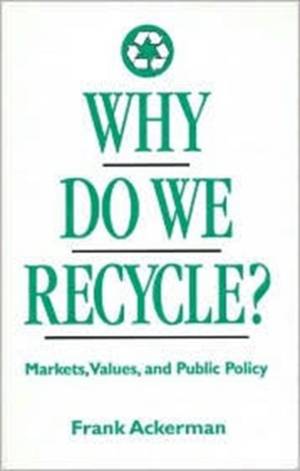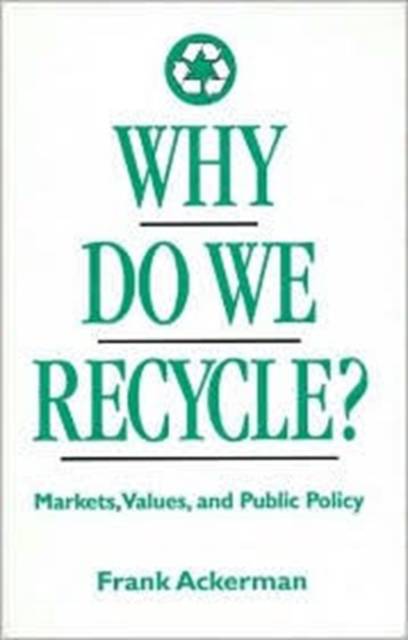
- Afhalen na 1 uur in een winkel met voorraad
- Gratis thuislevering in België vanaf € 30
- Ruim aanbod met 7 miljoen producten
- Afhalen na 1 uur in een winkel met voorraad
- Gratis thuislevering in België vanaf € 30
- Ruim aanbod met 7 miljoen producten
Omschrijving
The earnest warnings of an impending "solid waste crisis" that permeated the 1980s provided the impetus for the widespread adoption of municipal recycling programs. Since that time America has witnessed a remarkable rise in public participation in recycling activities, including curbside collection, drop-off centers, and commercial and office programs. Recently, however, a backlash against these programs has developed. A vocal group of "anti-recyclers" has appeared, arguing that recycling is not an economically efficient strategy for addressing waste management problems.
In Why Do We Recycle? Frank Ackerman examines the arguments for and against recycling, focusing on the debate surrounding the use of economic mechanisms to determine the value of recycling. Based on previously unpublished research conducted by the Tellus Institute, a nonprofit environmental research group in Boston, Massachusetts, Ackerman presents an alternative view of the theory of market incentives, challenging the notion that setting appropriate prices and allowing unfettered competition will result in the most efficient level of recycling. Among the topics he considers are:
- externality issues -- unit pricing for waste disposal, effluent taxes, virgin materials subsidies, advance disposal fees
- the landfill crisis and disposal facility siting
- container deposit ("bottle bill") legislation
- environmental issues that fall outside of market theory
- calculating costs and benefits of municipal recycling programs
- life-cycle analysis and packaging policy -- Germany's "Green Dot" packaging system and producer responsibility
- the impacts of production in extractive and manufacturing industries
- composting and organic waste management
- economics of conservation, and material use and long-term sustainability
Backed by empirical data and replete with specific examples, the book offers valuable guidance for municipal planners, environmental managers, and policymakers responsible for establishing and implementing recycling programs. It is also an accessible introduction to the subject for faculty, students, and concerned citizens interested in the social, economic, and ethical underpinnings of recycling efforts.
Specificaties
Betrokkenen
- Auteur(s):
- Uitgeverij:
Inhoud
- Aantal bladzijden:
- 222
- Taal:
- Engels
Eigenschappen
- Productcode (EAN):
- 9781559635059
- Verschijningsdatum:
- 1/12/1996
- Uitvoering:
- Paperback
- Formaat:
- Trade paperback (VS)
- Afmetingen:
- 155 mm x 228 mm
- Gewicht:
- 317 g

Alleen bij Standaard Boekhandel
Beoordelingen
We publiceren alleen reviews die voldoen aan de voorwaarden voor reviews. Bekijk onze voorwaarden voor reviews.











